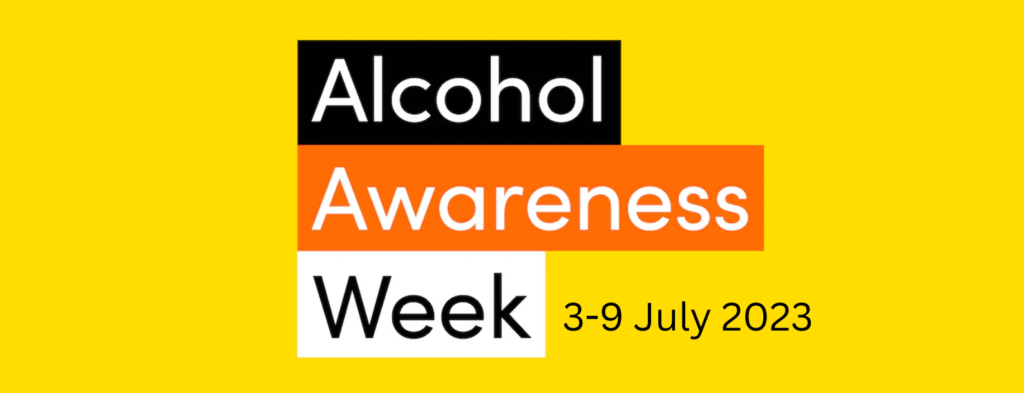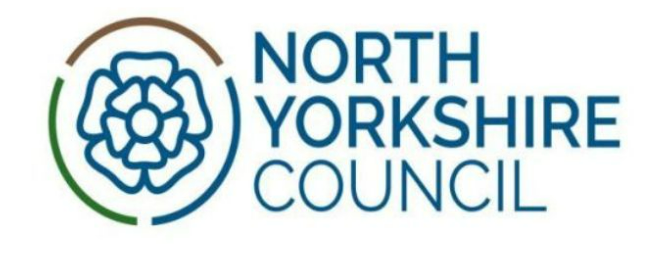Modern Slavery
Training
All of the courses below can also be found on our training webpage here: https://nysab.webc-dev.co.uk/training
Project Alliance have put together a list of training to expand your understanding of Child Exploitation. These are free to access, with focus on how Exploitation, Modern Slavery and Human Trafficking can be present in the places you work or socialise.
These are free, online resources designed to fit around your schedule and cover a range of expertise from beginner to experienced, working with different forms of exploitation.
Visit: Increase your knowledge and awareness of Exploitation, Modern Slavery and Human Trafficking – North Yorkshire Police | North Yorkshire Police
Designed for: This session will help frontline healthcare staff to identify victims of modern slavery and take appropriate action to address their health and safety needs.
Length: 30 mins eLearning
Course content:
Explain what modern slavery is, who is trafficked and the reasons why people are trafficked
State where you might encounter a victim of modern slavery in a healthcare setting
List the physical and behavioural signs that suggest a person may be a victim of modern slavery
Describe the rights to healthcare for suspected victims of modern slavery
Describe some of the healthcare problems that a victim of modern slavery may present with
Explain what action should be taken if you suspect a child or young person is a victim of modern slavery
Explain what action should be taken if you suspect an adult is a victim of modern slavery
Access from: Modern Slavery – elearning for healthcare (e-lfh.org.uk)
Designed for: For First Responders to understand how to recognise and respond to Modern Slavery
Length: 45 mins eLearning
Course content:
Modern slavery: First Responders./ As a First Responder you are from an organisation authorised to refer potential victims of modern slavery into the National Referral Mechanism (NRM). Your role is to identify and refer potential victims of modern slavery into support, where appropriate. Doing so will often be challenging and you may have to deal with complex situations.
This programme provides guidance on how to spot the signs of modern slavery, and what to do when you come across a potential victim of modern slavery. This programme aims to give you confidence to follow procedures swiftly and with compassion.
Access from: [!PROJECT_NAME!] (policingslavery.co.uk)
Designed for: For frontline practitioners in local areas across UK
Length: 5 sessions varying in length
Course content:
The Wilberforce Institute, together with the Rights Lab, Gangmasters Labour and Abuse Authority, the Humber Modern Slavery Partnership and Fresca Group, have developed a package of workshops aimed at front line practitioners in local areas across the UK. It is important that people working in local organisations, from health professionals to social workers, police officers, businesses, charity and community organisation workers, know not only how to respond to potential cases, but also know who else to involve to make sure people affected get the comprehensive support they need. This resource pack has been developed for regional Modern Slavery Partnerships to host five workshops, each aimed at a different target audience. You may choose to run all the workshops, or just a selection, depending on the current need in your region. Please feel free to run each workshop as many times as you wish.
Access from: Modern Slavery PEC | Interactive workshops for regional modern…
Designed for: Nurses, Midwives, wider health staff
Length: PDF Online/Hard copy
Course content:
Signs of trafficking in adults and children
Health signs
The role of nurse/midwife
Useful signposting/resources
Access from: Modern slavery and human trafficking | Clinical | Royal College of Nursing (rcn.org.uk)
Resources
Designed for: Modern slavery awareness and victim identification guidance. This guidance is aimed at a broad range of public sector staff who could potentially witness indicators of modern slavery, including those working in education, health, local authorities, and any other role that comes into contact with the public. The guidance may also be useful for members of the public or businesses, although they are not the primary audience.
Length: 10 minute guide
Access from: https://assets.publishing.service.gov.uk/government/uploads/system/uploads/attachment_data/file/655504/6.3920_HO_Modern_Slavery_Awareness_Booklet_web.pdf
Designed for: Any practitioners and volunteers who work with children and young people and their families in North Yorkshire
Length: Practice Guidance
Course Content includes:
– definitions
– risk factors
– barriers to victim co-operation
– key investigative considerations
– the National Referral Mechanism
– crime recording
– tactical options in dealing with modern slavery
– victim management
– legislation and civil orders
– contact details
Access from: https://www.safeguardingchildren.co.uk/professionals/procedures-practice-guidance-and-one-minute-guides/modern-day-slavery-and-human-trafficking/
Designed for: Any practitioners and volunteers who work with children and young people and their families in North Yorkshire
Length: One Minute Guide
Course content: Basic introduction to what trafficking is and the National Referral Mechanism
Access from: https://www.safeguardingchildren.co.uk/professionals/one-minute-guides/trafficking-and-the-nrm/
Designed for: NYSCP has developed and hosts a series of North Yorkshire centric and appropriate national resources to provide information, raise awareness and develop knowledge across areas of Child Exploitation.
Length: Knowledge hub
Course Content:
– Child Sexual Exploitation (CSE)
– Child Criminal Exploitation (CCE), including County Lines
– Contextual Safeguarding
– Harmful Sexual Behaviour
– Missing From Home and Care
– Modern Slavery and Child Trafficking
– Online Exploitation
Access from: https://www.safeguardingchildren.co.uk/beaware/
Designed for: Overview of MACE arrangements in North Yorkshire
Length: Practice Guidance
Course Content:
– Partnership structure
– Priorities
– MACE Plan on a Page
Access from: https://www.safeguardingchildren.co.uk/wp-content/uploads/2021/02/MACE-and-Contextual-Safeguarding-Strategy-2020-2023.pdf
Designed for: Changing the way professionals discuss and record their work with exploitation
Length: Practice Guidance
Course Content: Explores the use of language and appropriate terminology to be used when discussing individuals who
have been exploited, or are at risk of exploitation
Access from: https://www.safeguardingchildren.co.uk/wp-content/uploads/2021/03/Solihull-Language-Matters_.pdf
Anti-Slavery Partnership Toolkit: Partnership is essential to effective action against modern slavery. Throughout the UK many different organisations are working hard to prevent slavery, promote identification of victims, provide support services to survivors, and ensure that slavery cannot flourish. A range of resources are available including access to the UK Training Library for Free quality assured training resources and accredited and updated by the UKM Modern Slavery Training Delivery Group.
Designed for: Frontline practitioners and service providers to work in partnership. Explore this toolkit to find out how to improve your local partnership’s response to slavery.
Course Content:
– Partnership Checklist – our checklist will help you to review your partnership needs and highlight relevant resources on this site.
– Governance Library – thinking about accountability, action planning or performance management?
– Resources – Information to help you with key aspects of partnership work, such as planning an awareness campaign, engaging with different partners, or reviewing care pathways.
– Reports and guidance – stay up to date with the relevant legislation.
– UK Training library – Free quality assured training resources and accredited and updated by the UK Modern Slavery Training Delivery Group.
– Contact us: Get in touch if you have further resources to offer or want to know more.
Access from: https://iasctoolkit.nottingham.ac.uk/
Additional Courses
There is a selection of downloadable training materials including a range of online topics including the following:
Breaking County Lines Train the Trainer Course. Breaking County Lines is a form of modern slavery.
Designed for: The Clewer Initiative is enabling Church of England dioceses and wider Church networks to develop strategies to detect modern slavery in their communities and help provide victim support and care. Those who want to take the course out to their own communities as well as practitioners forums for those who have already attended the County Lines Courses.
Length: Online courses take place over three 2-hour sessions covering the four course modules: Understanding County Lines; Detection of County Lines; Protecting Children, Young People and Vulnerable Adults; and Building Resilience.
Course Content: The sessions make use of videos and other online resources to gain an understanding of county lines, how it operates in our communities and what we can do to respond. If you would like to find out more about the courses and upcoming course dates, please email us at: clewerinitiative@churchofengland.org
Access from: https://theclewerinitiative.org/training-courses
Virtual Training Products for Professionals:
– Product 1 – Modern Slavery Awareness,
– Product 2 – Spot the Signs for the Practitioner in the pre-NRM process,
– Product 3 – Disclosure Encounter
Designed For: Training for Professionals: Hope for Justice believes in multi-agency working and is keen to work with and train law enforcement, medical professionals, social services, community outreach programmes and other frontline agencies and organisations to tackle the issue of modern slavery.
Length: The following products are available online in a virtual classroom setting via either Zoom or Microsoft Teams. Training for Professionals. All products are 3-hours but timings can possibly be reduced. Due to the length of course and time spent on screen, its usual practice to deliver only one 3 hour session per day. Each produce is split in to 2×90 minutes sessions and is delivered on either a morning or afternoon with a 30-minute break. Times of sessions can vary when requested.
If you wish to discuss arranging dates and training needs, please contact: training.uk@hopeforjustice.org
Course content:
– Modern Slavery Awareness
– Spot the Signs for the Practitioner in the pre-NRM process
– Disclosure Encounter
For further course details and to make an enquiry visit https://hopeforjustice.org/training-uk/
Access from: https://hopeforjustice.org/training-uk/
Training products for businesses. Slave-Free Alliance is part of Hope for Justice, a leading global charity: all profits are reinvested into charitable anti-slavery projects.
Slave-Free Alliance is a social enterprise and membership initiative launched by anti-slavery charity Hope for Justice.
Membership includes global multinationals, household names like Aviva, Dixons Carphone, Clarks and Arriva, as well as small to medium enterprises (SMEs) with only a few employees. They all share a common goal: working towards a slave-free supply chain.
A wide variety of business sectors are represented among our membership, including: business and professional services, engineering, data analysis and IT, utilities and energy, environmental services, food manufacturing, agriculture, insurance, legal, pharmaceutical, property services, recruitment, retail, higher education, aviation, transport and waste management.
Slave-Free Alliance is the business sector’s acknowledgement that slavery in supply chains is real and a key factor driving human trafficking in the developing world and across borders to countries like the UK.
It can affect any unprepared business, no matter their sector, though some industries are at particular risk – notably waste and recycling, agriculture, low-skilled manufacturing, hand car washes, beauty salons and the hospitality and restaurant sector.
Even many businesses who consider themselves completely ‘safe’ are unaware of how their everyday procurement practices can bring them into contact with other companies whose own operations have been infiltrated by traffickers and exploitative recruiters, forcing victims into forced labour.
Slave-Free Alliance offers a wide range of services and access to its experts, including training, gap analysis, due diligence, risk management resources, and help with investigations, crisis response, remediation and Slavery and Human Trafficking Statements (required for large businesses under the UK’s Modern Slavery Act 2015, but having one is considered good practice for organisations of all sizes).
Membership of Slave-Free Alliance is a simple way for employers to get the answers and support they need to combat this growing threat.
Access from: www.slavefreealliance.org





 View all our news
View all our news